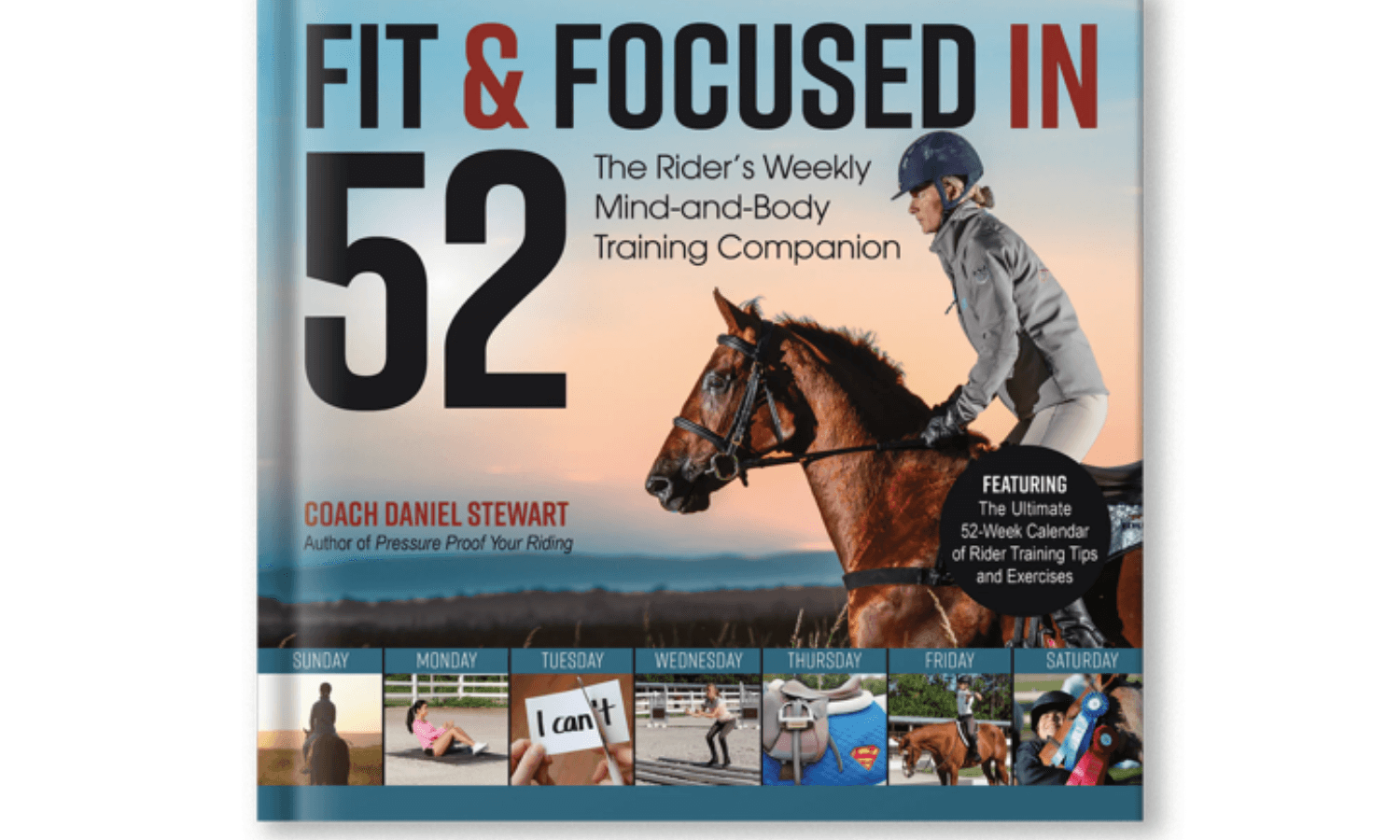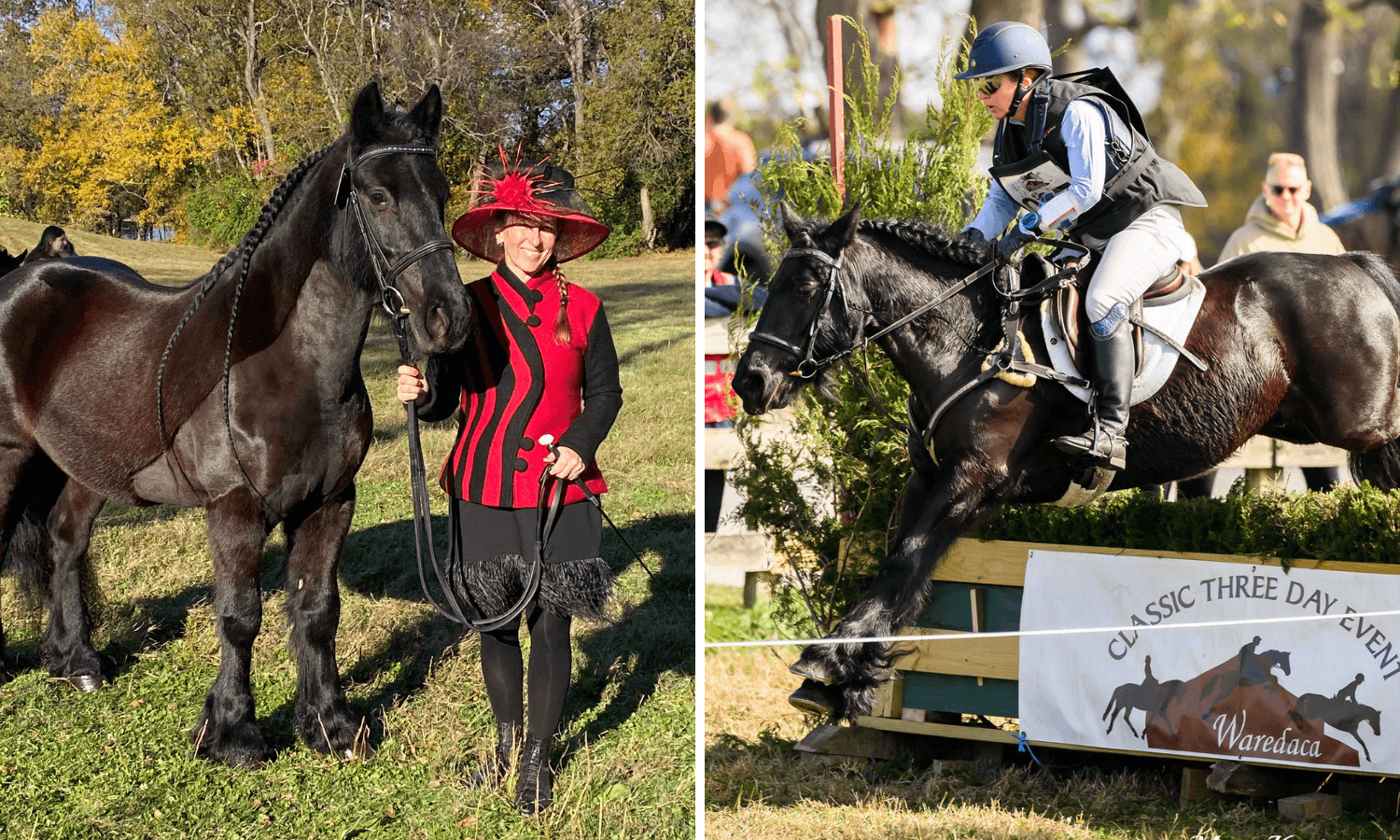The Happiness Advantage

The following excerpt is from Fit and Focused in 52: The Rider’s Weekly Mind-and-Body Training Companion, by Coach Daniel Stewart.
RELAX AND ENJOY THE RIDE
You have to agree that when you arrive at the barn, you arrive at a place that’s more than just fences, paddocks, and arenas—it really is your happy place: the place you go to when you need a little positive distraction from the craziness of your crazy world. Unlike other sport venues, however, your happy place isn’t defined by the venue itself but by the relationship with S the trainers, peers, and horses found there.
So what happens when your happy place becomes a little less happy? What happens when your thoughts turn from friends, fillies, and fun to fears, falling, and freaking out? What happens when your happy place turns into your crappy place? Teaching yourself to find the silver lining is certainly a big part of FF52 and will be a major focus of your 52 mental tips, but from a mental training standpoint, it’s actually considered a near necessity. In fact, studies have shown that you’re up to 34% better at everything you do when you are happy (as compared to everything you do when you’re feeling tense, frustrated, nervous, or intimidated). This means that you’re 34% better at schooling and showing, teaching and learning, at school and at work, as a brother, sister, mom, or dad when you’re happy.
The reason that you’re so much better when you’re happy is because emotions like joy, cheer-fulness, and delight trigger the release of feel-good hormones that increase your confidence, courage, focus, and optimism. Chemically, you’re simply stronger and better when you’re happy.
THE HAPPINESS ADVANTAGE
Studies have shown overwhelmingly that people are much more successful when they’re happy. As a result, riders who enjoy all parts of riding (including the mistakes and challenges) are much more likely to succeed. This is called the happiness advantage. You’re not just happy because you’re successful—you’re actually more likely to be successful simply because you’re happy.
QUIET YOUR CAVEMAN
On average, you experience three times more positive things every day than negative. You have to admit it, your life is really pretty good. You probably have several nice friends, good health, and are reasonably safe and comfortable. But here comes the “but” (and it’s a big but!). Even though you experience three times more positive things than negative, you’re actually five times better at focusing on the negative! Many people live a relatively good life, but unfortunately, they just can’t stop thinking about the bad.
Here’s a common example: Imagine you have to jump 12 fences in an important class. You jump the first 11 wonderfully but knock over the very last one (the dreaded “last-fence-itis”). Now, which fence do you think you might end up thinking about for the rest of the day? If you’re like most, it’ll probably be the one last fence that came down (completely forgetting about all the really good ones that stayed up). That’s an 11 to 1 ratio, but we still just can’t seem to stop thinking about the bad one.
Now, if this describes how you might respond to a similar problem, don’t feel bad because the tendency to sometimes focus on the negative in a positive world is actually considered a survival mechanism born back in the caveman (or cave-woman) days. Then, people couldn’t spend their entire day focusing on good stuff like smelling pretty flowers and watching fluffy clouds because if they did, they’d get eaten by a saber-tooth tiger really fast! As a result, they taught themselves to survive by focusing on problems and the bad stuff—because the bad stuff was trying to eat them!
As a result, humans have spent millions of years practicing how to focus on the bad stuff. Sure it made sense back then, but it no longer makes any sense at all because saber-tooth tigers have been extinct for eons! We now live in a positive world so it’s time for us to shake this caveman mentality and stop focusing on the bad stuff in such a great life.
HAPPY IN YOUR HAPPY PLACE
Happiness isn’t just an emotion or a feeling—it’s a way of life. It’s a decision that you need to make on a daily basis and one you must completely buy into. You can’t say you’re going to be happy at the barn on Tuesdays and Thursdays but not on the weekends. If you kind of want to be happy then you’ll simply end up being kind of happy. And that’s just not good enough when it comes to our sport.
This excerpt from Fit and Focused in 52 is reprinted with permission from Trafalgar Square Books. To get your copy, go to: https://trafalgarbooks.com/products/fit-focused-in-52















